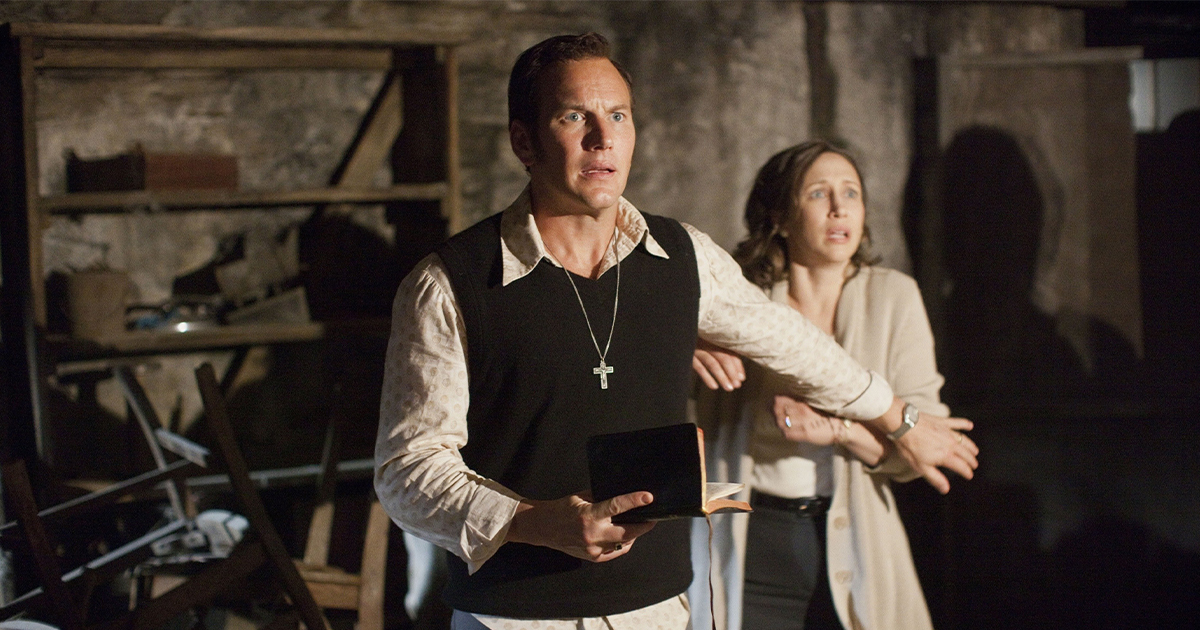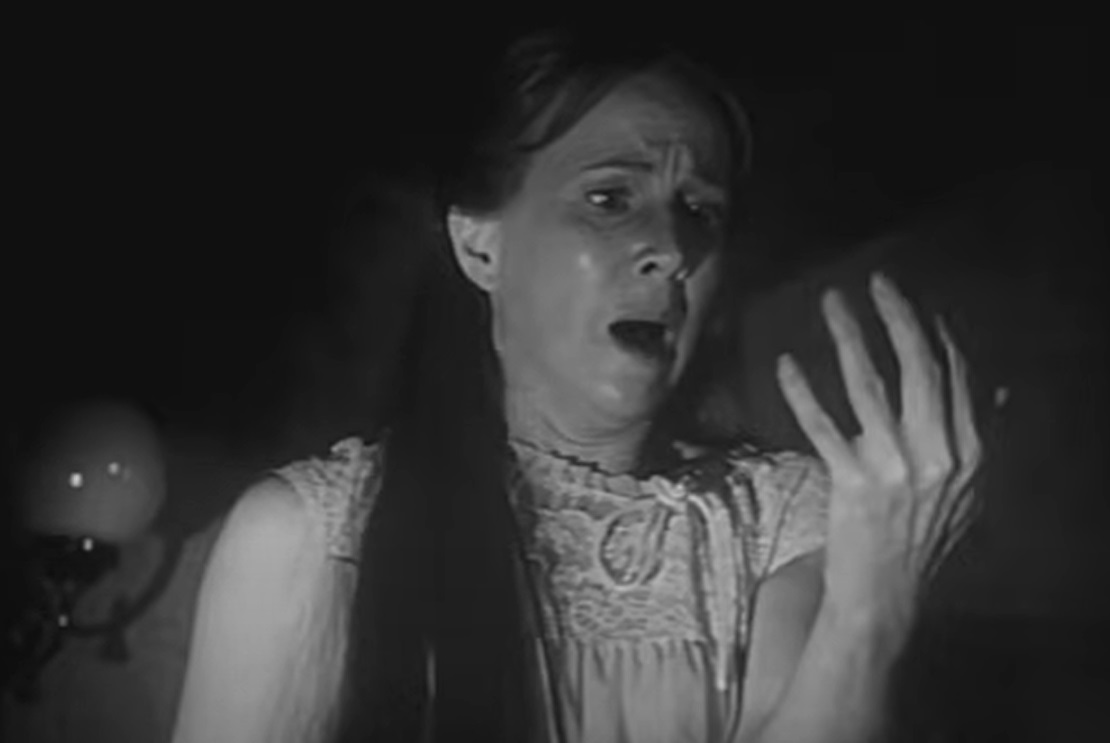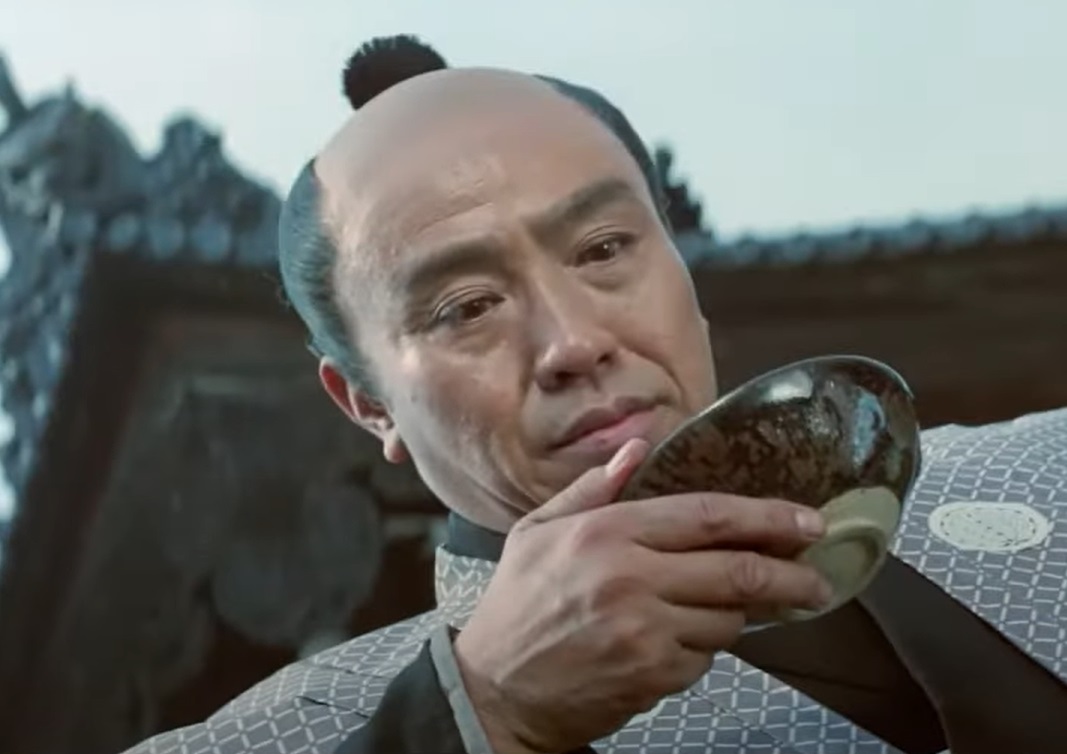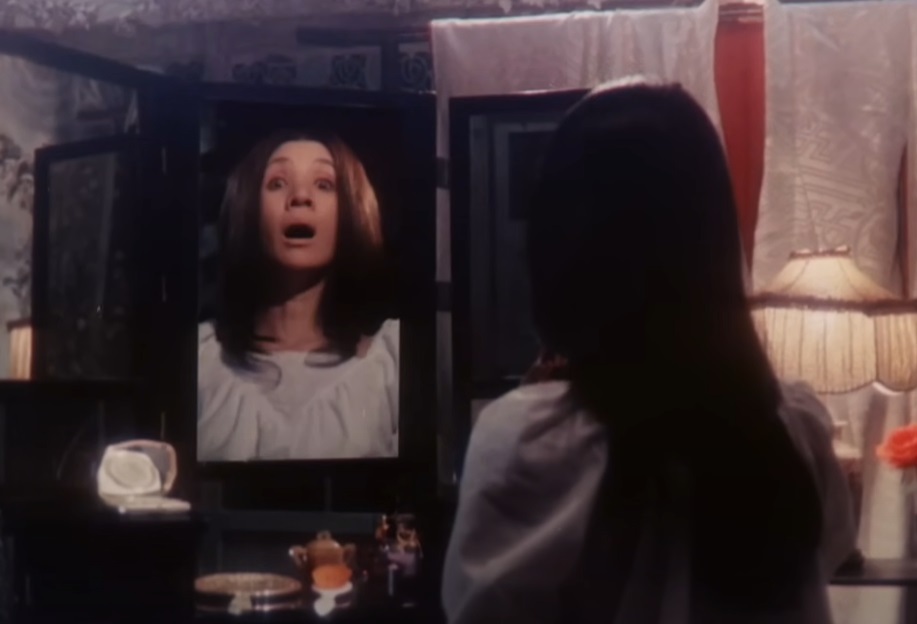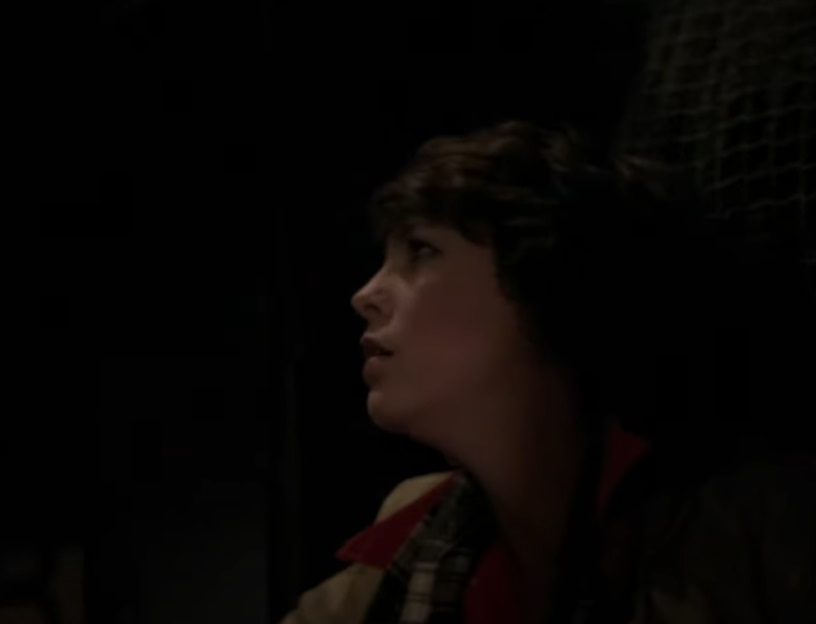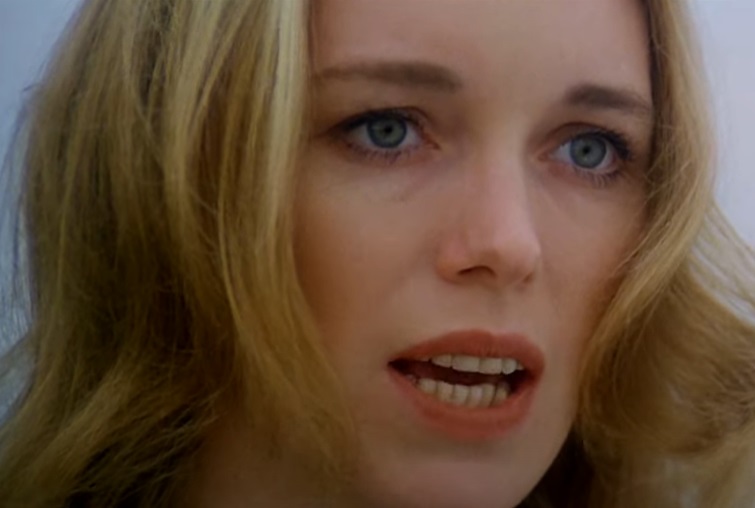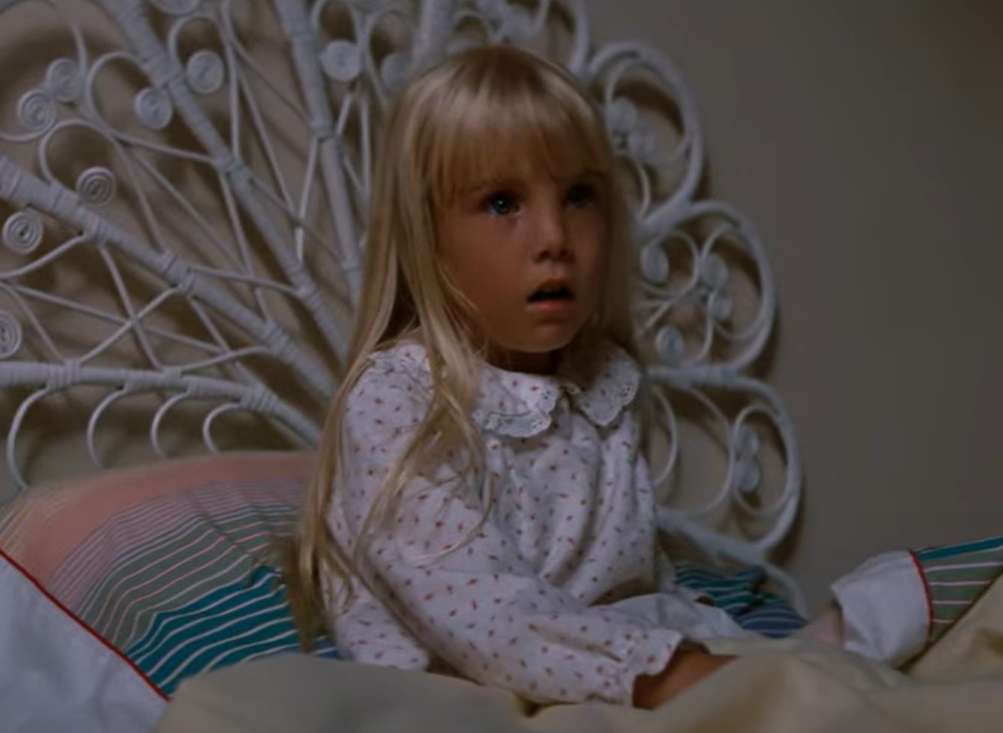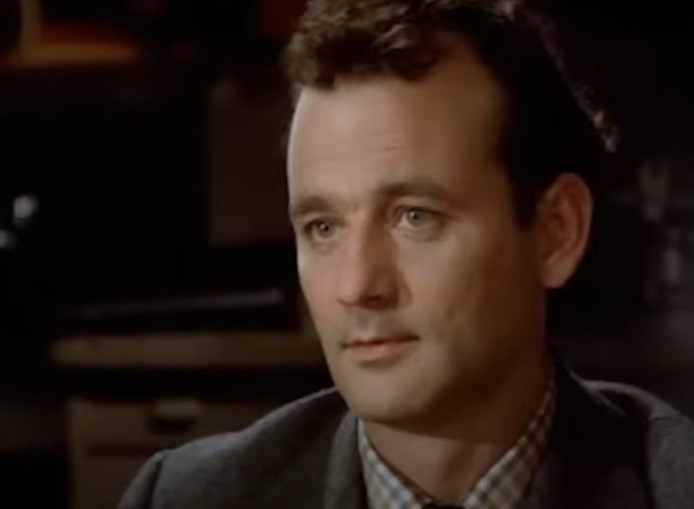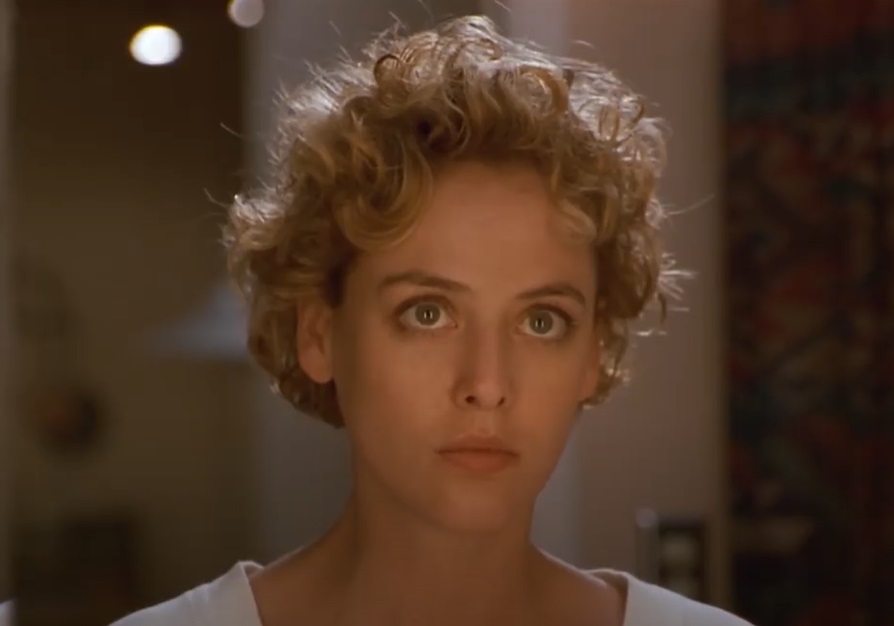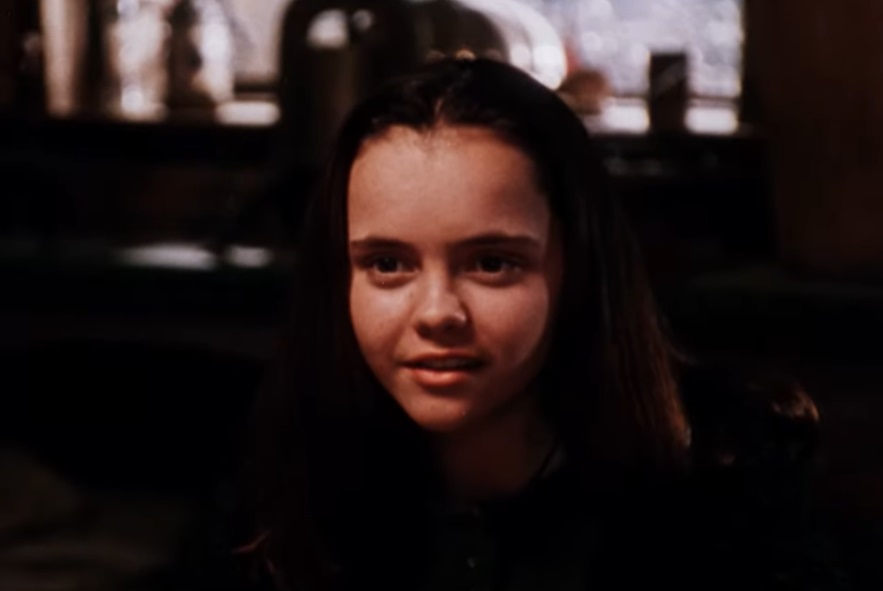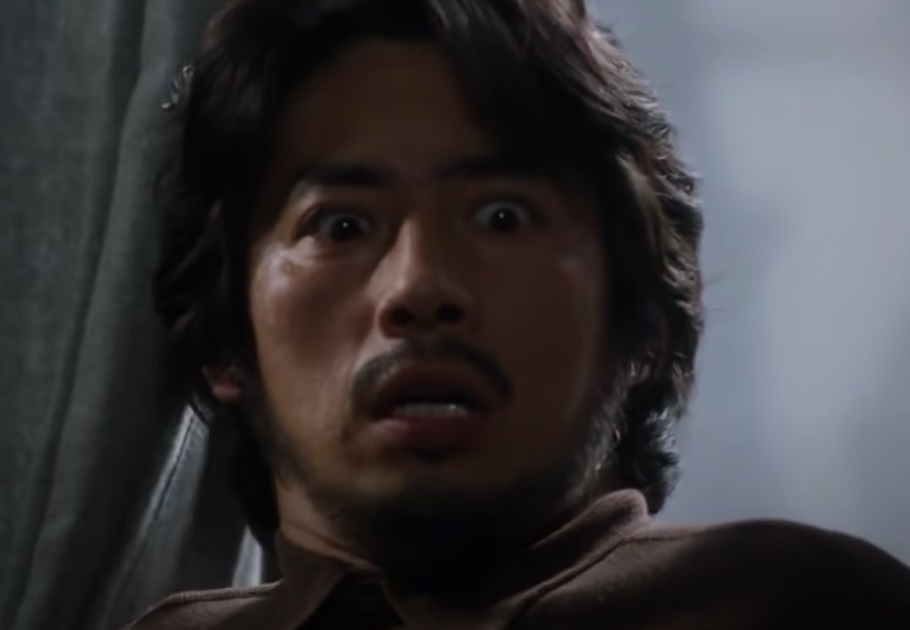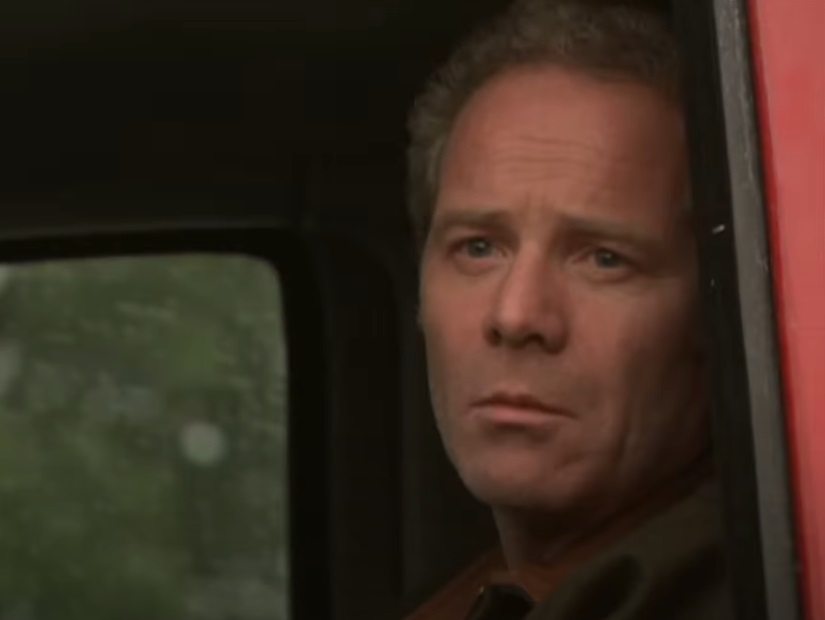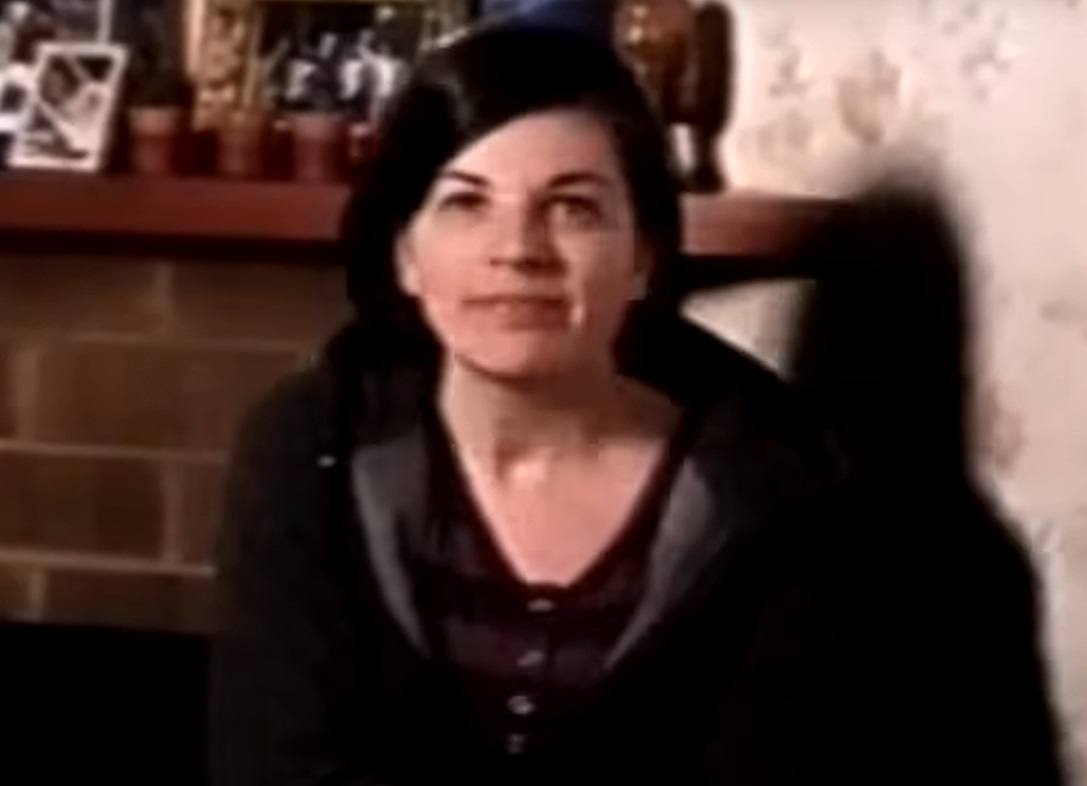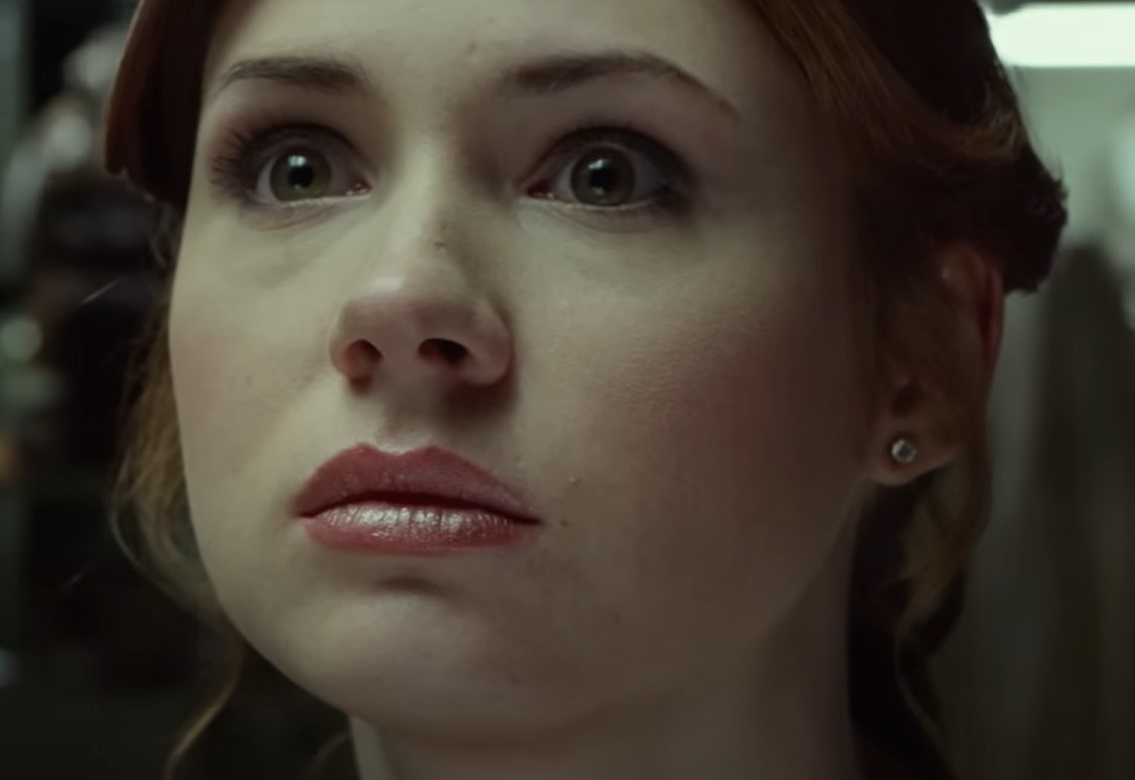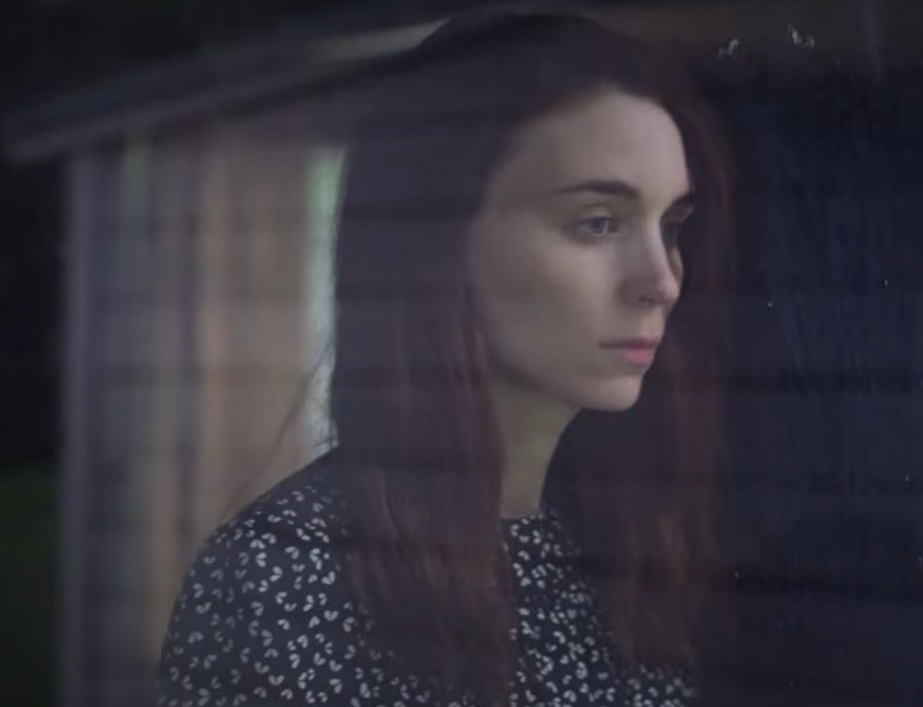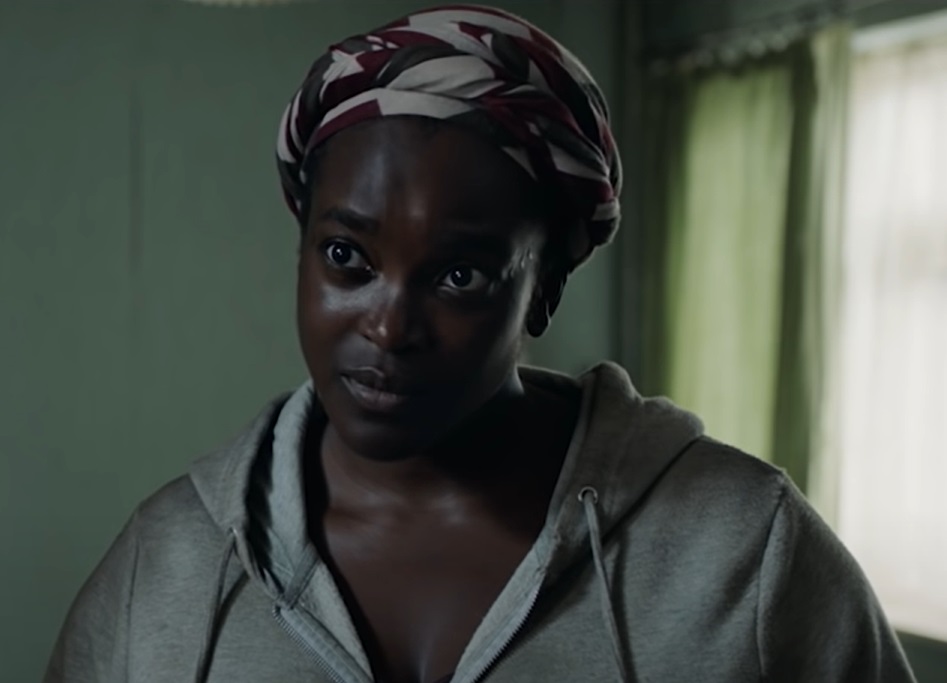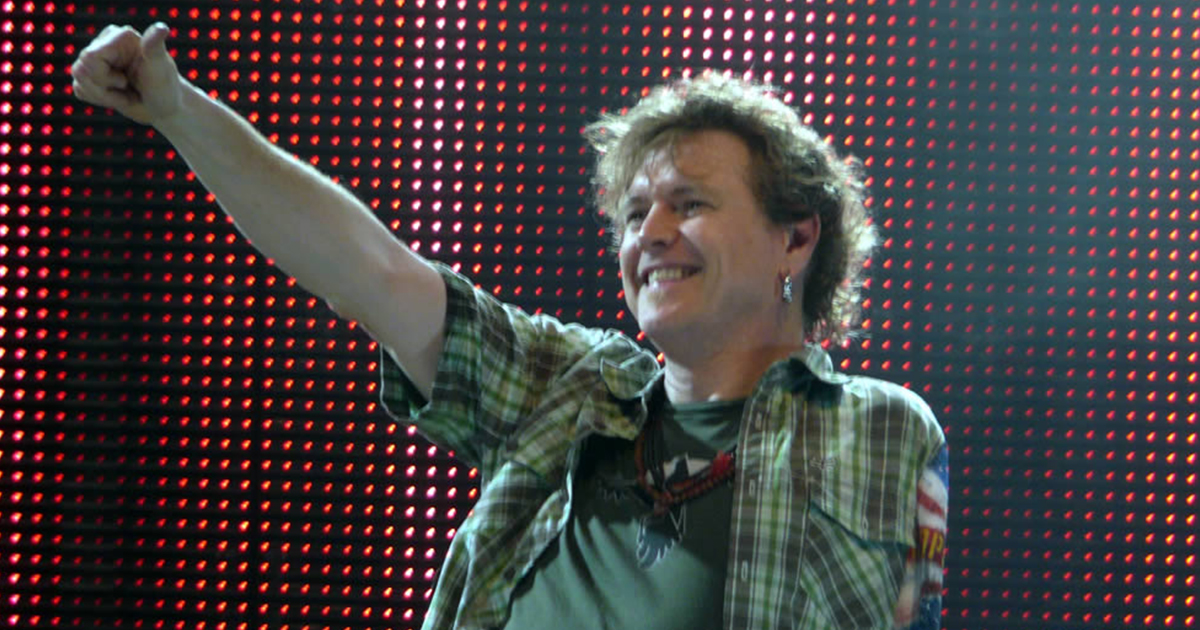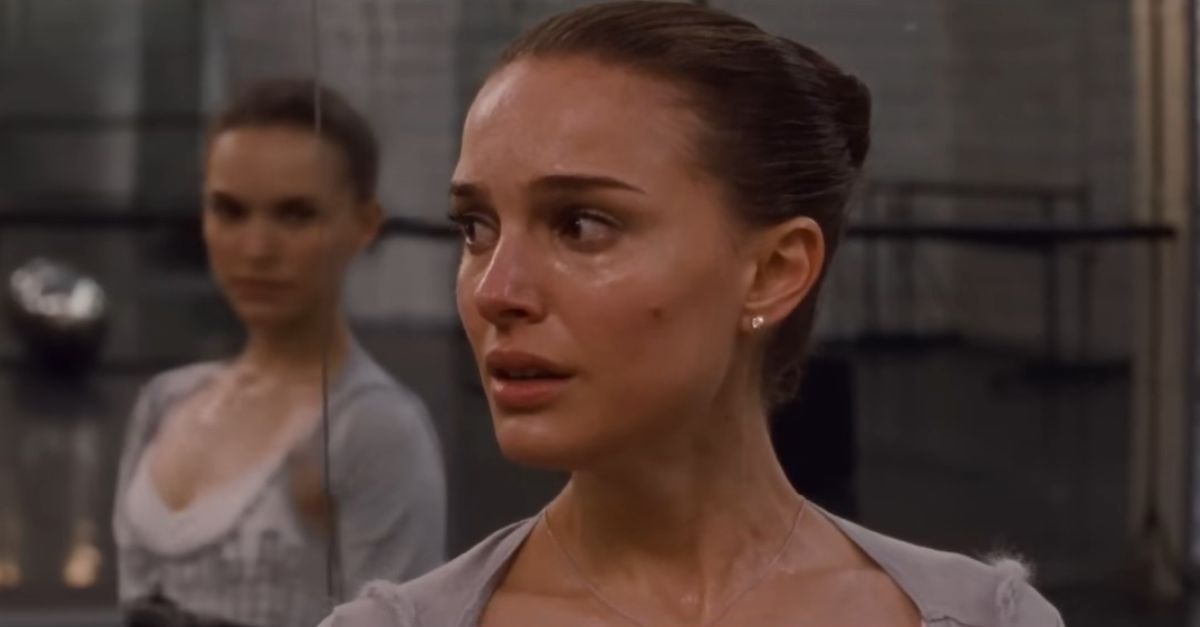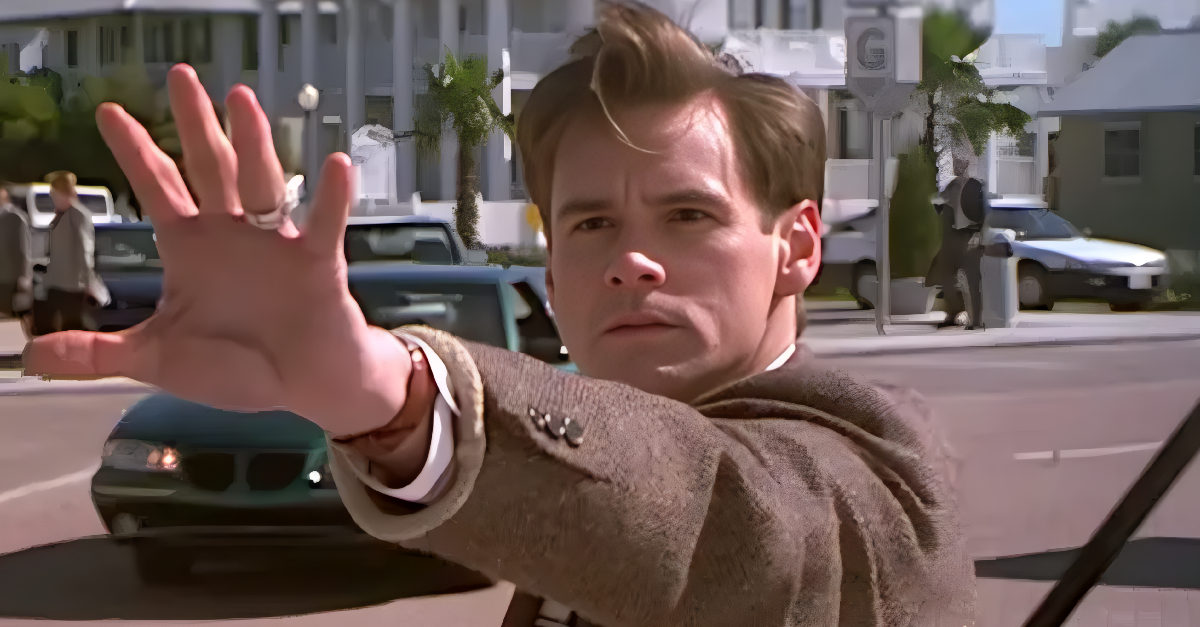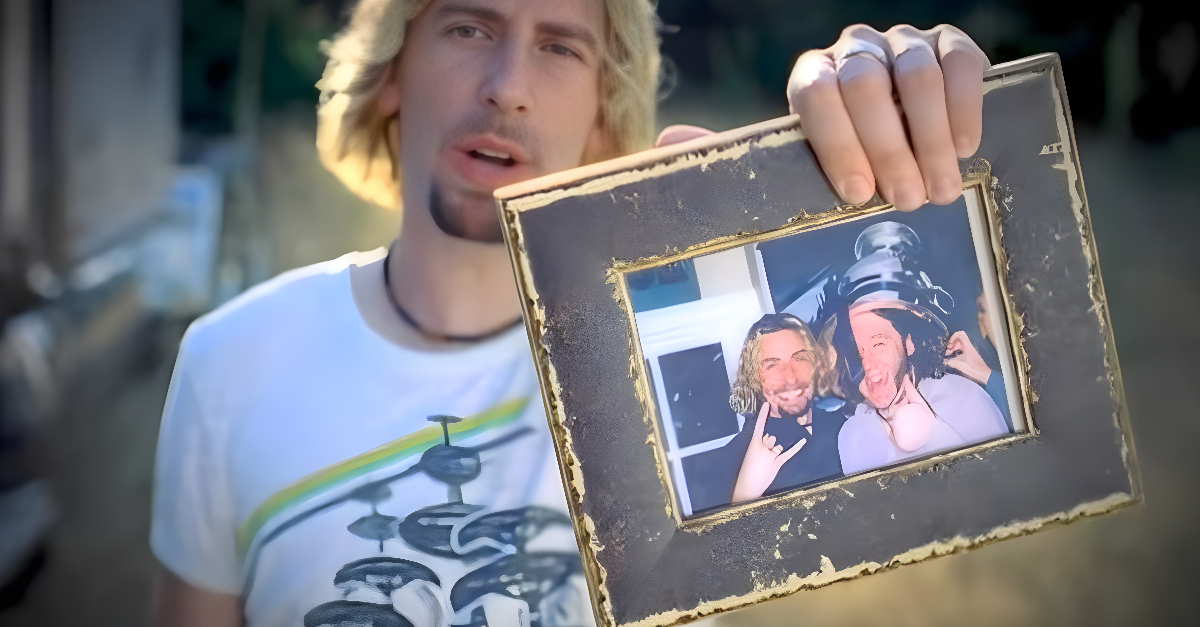Into The Spirit Of Things
It’s probably safe to say that humans have had a close relationship with ghosts and spirits for most of our existence. The mystery of what, if anything, lies beyond the living world, fascinates us. And in a century of filmmaking, we’ve explored some tantalizing, and terrifying, possibilities. And they’re not all horror films.
The Uninvited (1944)
Before The Uninvited, a common trope in ghost films was that the ghosts weren’t real. They were usually someone putting on an act, a la Scooby-Doo. The Uninvited, however, tells a tale of ghostly revenge on the descendants of a heinous act.
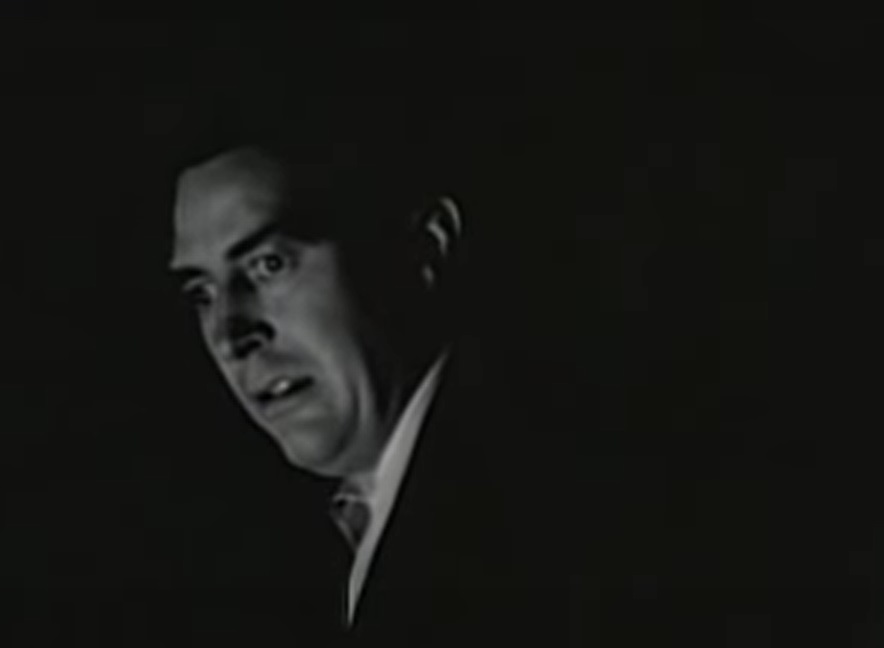 Paramount, The Uninvited (1944)
Paramount, The Uninvited (1944)
The Ghost And Mrs. Muir (1947)
Not all ghost films are scary, as is evident in this early entry into the ghost film genre. A widower moves into a new home only to find it haunted by the ghost of a sea captain. A relationship blossoms between the two, despite the distinct differences in their states of being!
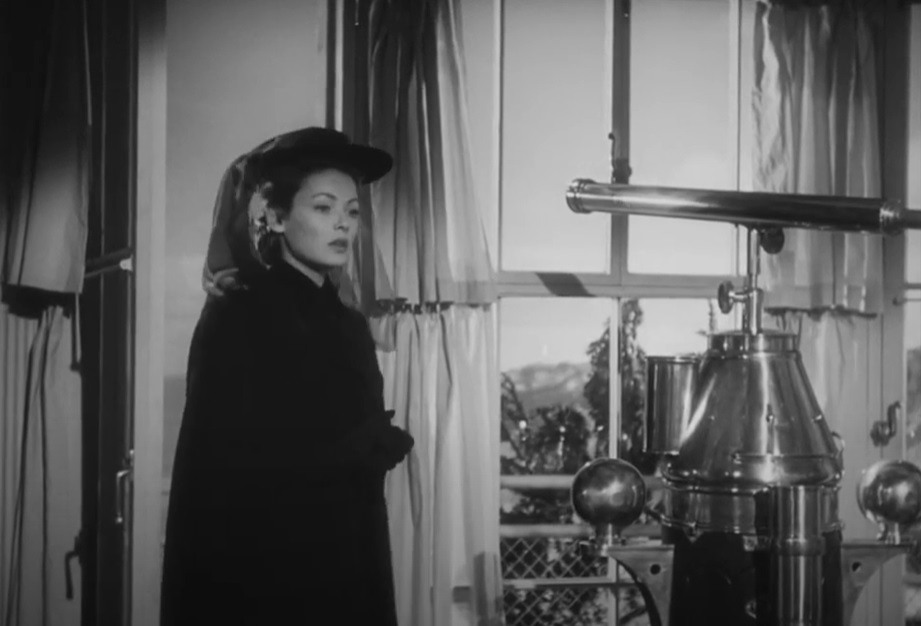 Twentieth Century, The Ghost and Mrs. Muir (1947)
Twentieth Century, The Ghost and Mrs. Muir (1947)
A Christmas Carol (1951)
One of the greatest ghost stories of all time, Charles Dickens’s A Christmas Carol has had numerous film versions over the years. The special effects suffer the limitations of its time, but there’s a genuine creepiness to the groups of ghosts lingering in Victorian London.
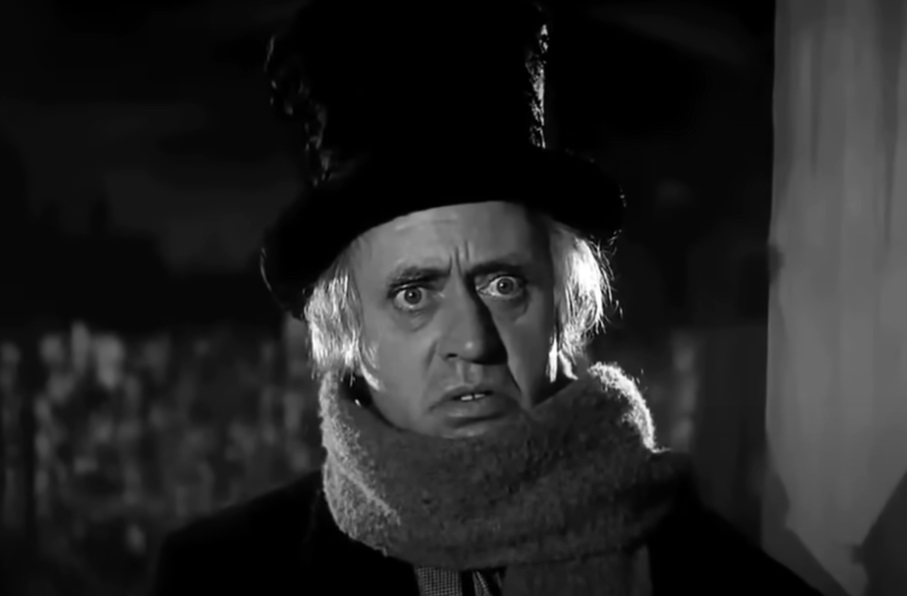 United Artists, Scrooge (1951)
United Artists, Scrooge (1951)
House On Haunted Hill (1959)
Featuring a performance by horror legend Vincent Price, House on Haunted Hill is considered a classic of 1950s scary movies. Though perhaps a bit tame by modern standards, the film sets a standard for the combination of camp and horror that continues well into the 21st century.
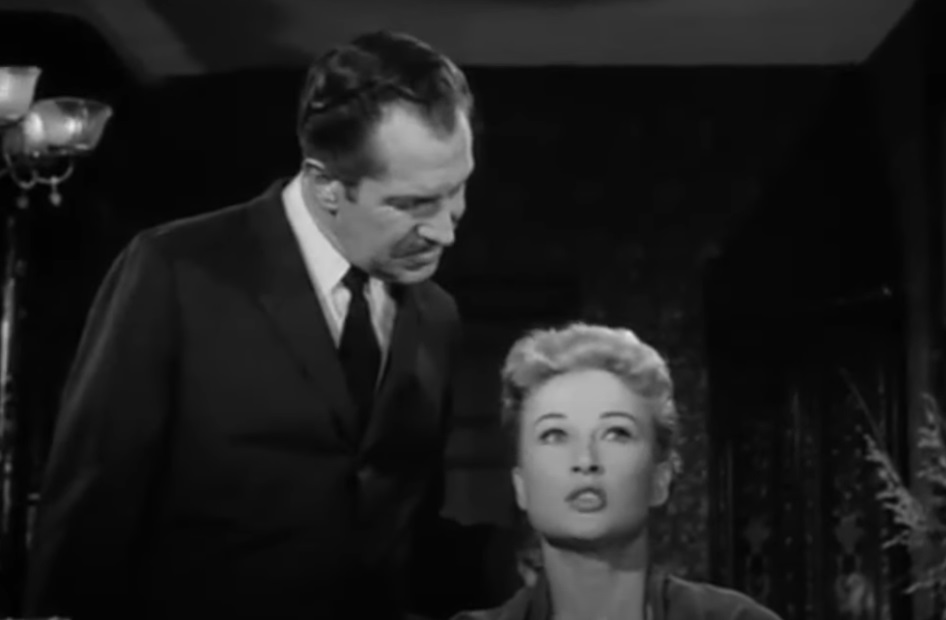 Allied Artists, House on Haunted Hill (1959)
Allied Artists, House on Haunted Hill (1959)
The Innocents (1961)
A chilling and artistic adaptation of Henry James’s Turn of the Screw, The Innocents is a definitive gothic horror. A remote mansion, creepy orphaned children, and a nightgown-clad young governess are genre hallmarks that come together seamlessly in this beautifully shot film.
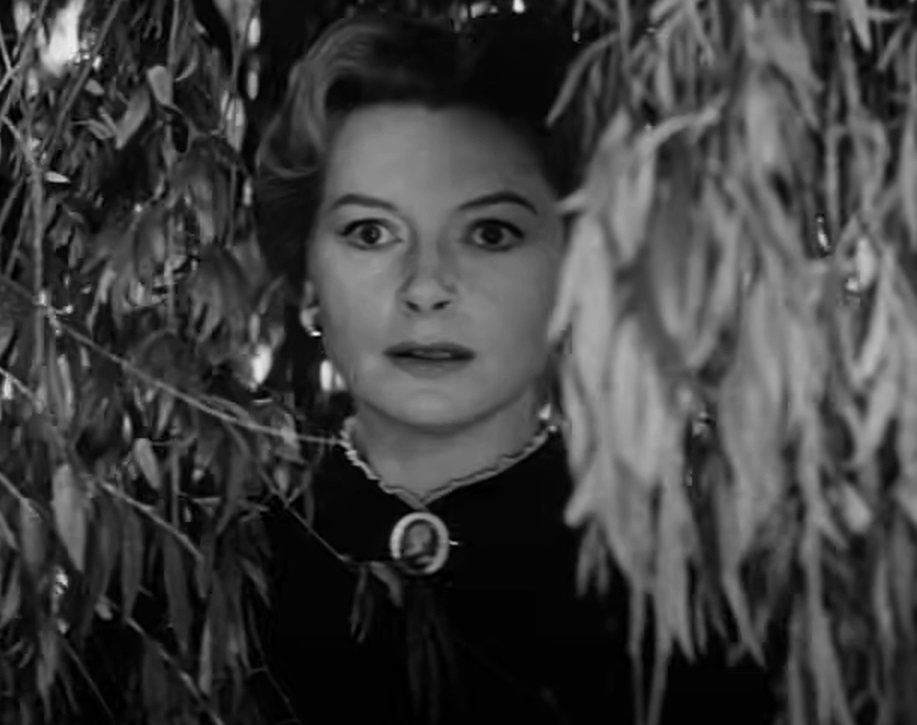 Twentieth Century, The Innocents (1961)
Twentieth Century, The Innocents (1961)
Carnival Of Souls (1962)
Often cited as an influence on the hallucinatory work of David Lynch, Carnival of Souls follows a woman fleeing her past through a kaleidoscope of ghosts and visions. What is real and what is a product of a traumatized mind are questions that are never really answered, even on repeat viewings.
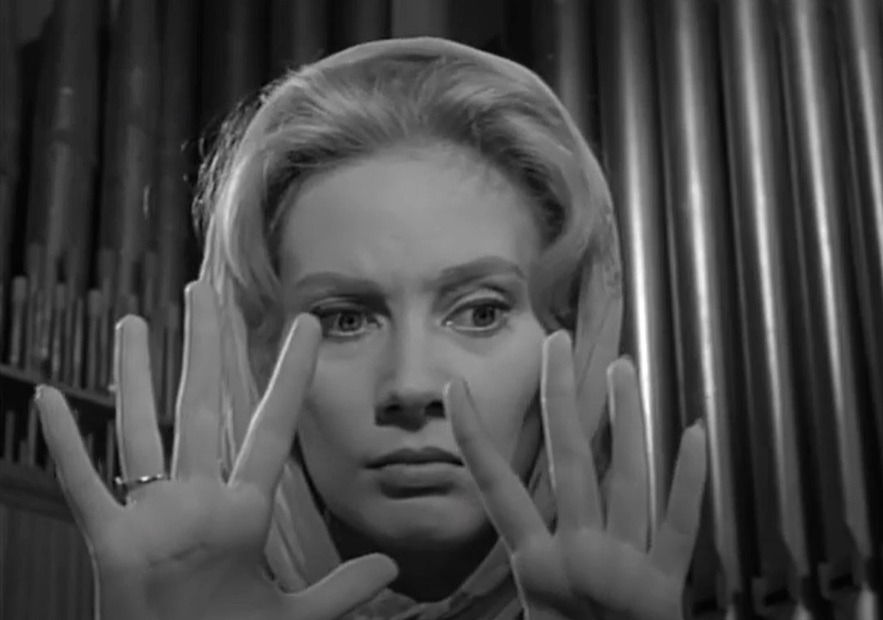 Harcourt, Carnival of Souls (1962)
Harcourt, Carnival of Souls (1962)
The Haunting (1963)
A classic haunted house tale, The Haunting leaves viewers uncertain about how much of what they, and the main characters, experienced was really a haunting and how much was in the minds of the troubled characters. Director Robert Wise crafted a creepy, thought-provoking ghost story that holds up even today.
Kwaidan (1964)
Japan’s penchant for ghost tales isn’t the recent phenomenon that films like Ringu and Ju-on might suggest. This anthology film tells four spectacular tales of spirits from beyond the veil and the inevitable influence they have on the living. The segment titled “Hoichi the Earless” is considered the masterpiece of this classic Japanese film.
The Legend Of Hell House (1973)
One of the great takes on the “scientist investigates the afterlife in a haunted house” genre, it stars the inimitable Roddy McDowell as a psychic who is part of a team tasked with proving the existence of life after death. The experiment, as may be expected, does not go to plan. Or does it?
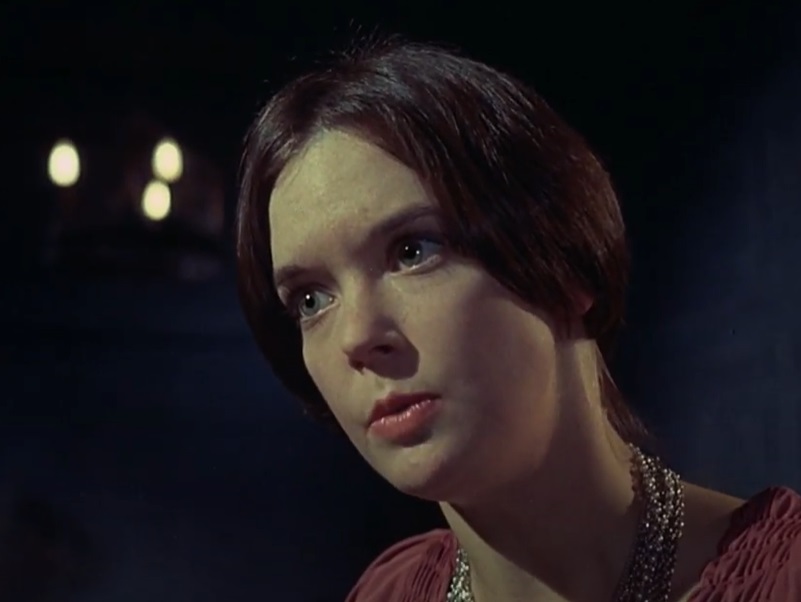 Twentieth Century, The Legend Of Hell House (1973)
Twentieth Century, The Legend Of Hell House (1973)
Hause (1977)
This over-the-top, hallucinatory Japanese horror film is a visual feast coupled with a haunted house story. A group of girls venture into a haunted house and things just go crazy from there. Animated characters and stop-motion monsters are just the tip of this very, very weird iceberg of a movie.
The Amityville Horror (1979)
A pretty standard ghost story, The Amityville Horror set the stage for a plethora of “based on true events” horror films throughout the following decades. The film is based on a controversial book, and the iconic house used in the movie has become one of horror’s most recognizable locations.
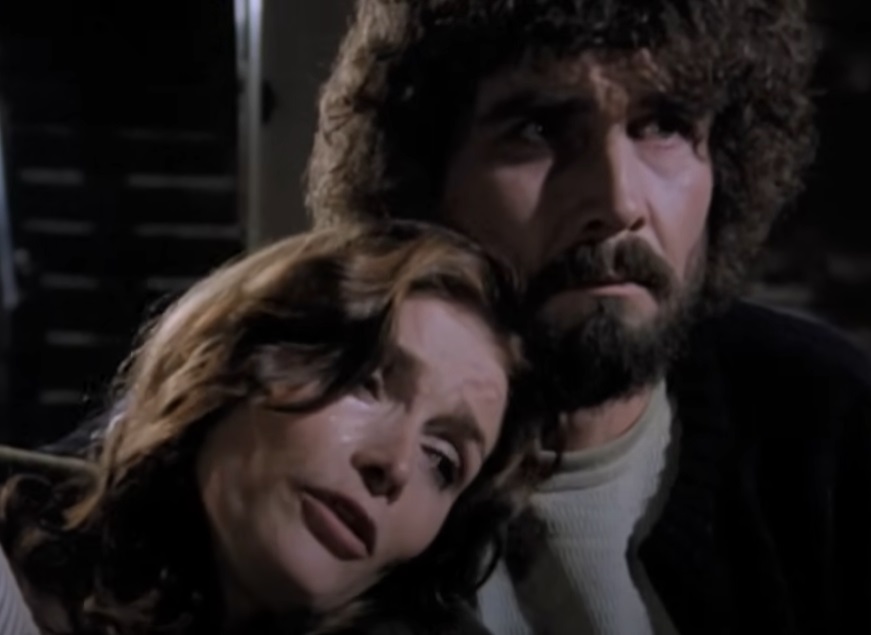 AIP, The Amityville Horror (1979)
AIP, The Amityville Horror (1979)
The Changeling (1980)
Director Martin Scorsese has called The Changeling one of the scariest movies of all time. The film builds a suspenseful atmosphere, helped along by an understated performance by lead actor George C Scott. Scott went on to star in another celebrated ghost story in 1984, when he starred as Ebeneezer Scrooge in one of the many A Christmas Carol adaptations.
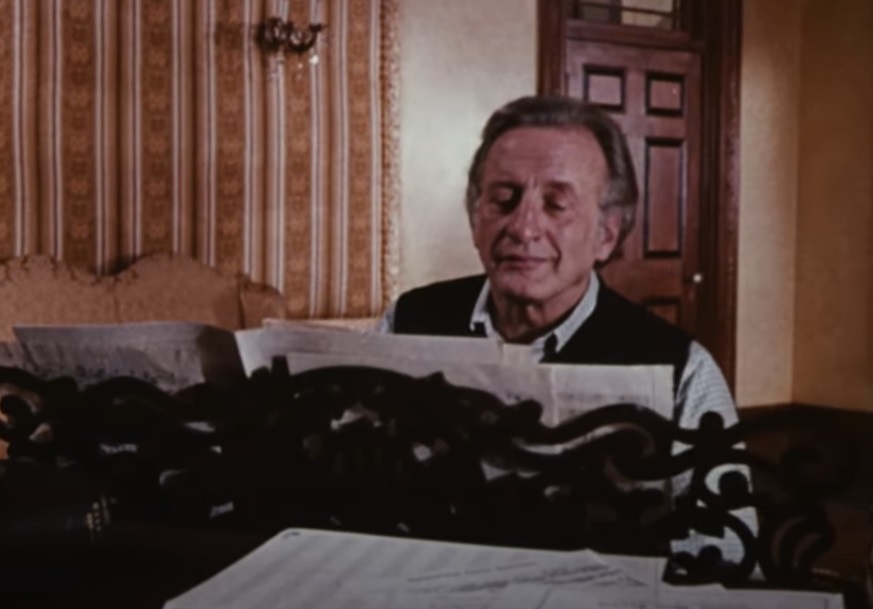 Chessman Park, The Changeling (1980)
Chessman Park, The Changeling (1980)
The Fog (1980)
John Carpenter’s follow-up to his hugely successful Halloween is a tale of ghostly revenge in a small, coastal town. The actions of the town founders come back to haunt—literally—the modern-day inhabitants, all served up with Carpenter’s uncanny sense of how to scare his audience in just the right way.
The Beyond (1981)
Director Lucio Fulci is best known for his gorey, blood-soaked zombie films. In The Beyond, despite there still being a few lingering zombies, a gate to Hell opens up and releases ghosts into an old hotel. Fulci’s trademark gore is on full display, for those who have the stomach for it.
The Entity (1982)
The Entity gained notoriety immediately upon release for its tale of a woman who is bedeviled by a ghost in some disturbingly intimate ways. It’s an uncomfortable watch given the delicate subject matter, especially as it’s supposedly based on “true” events. Worth a look for horror fans seeking something different.
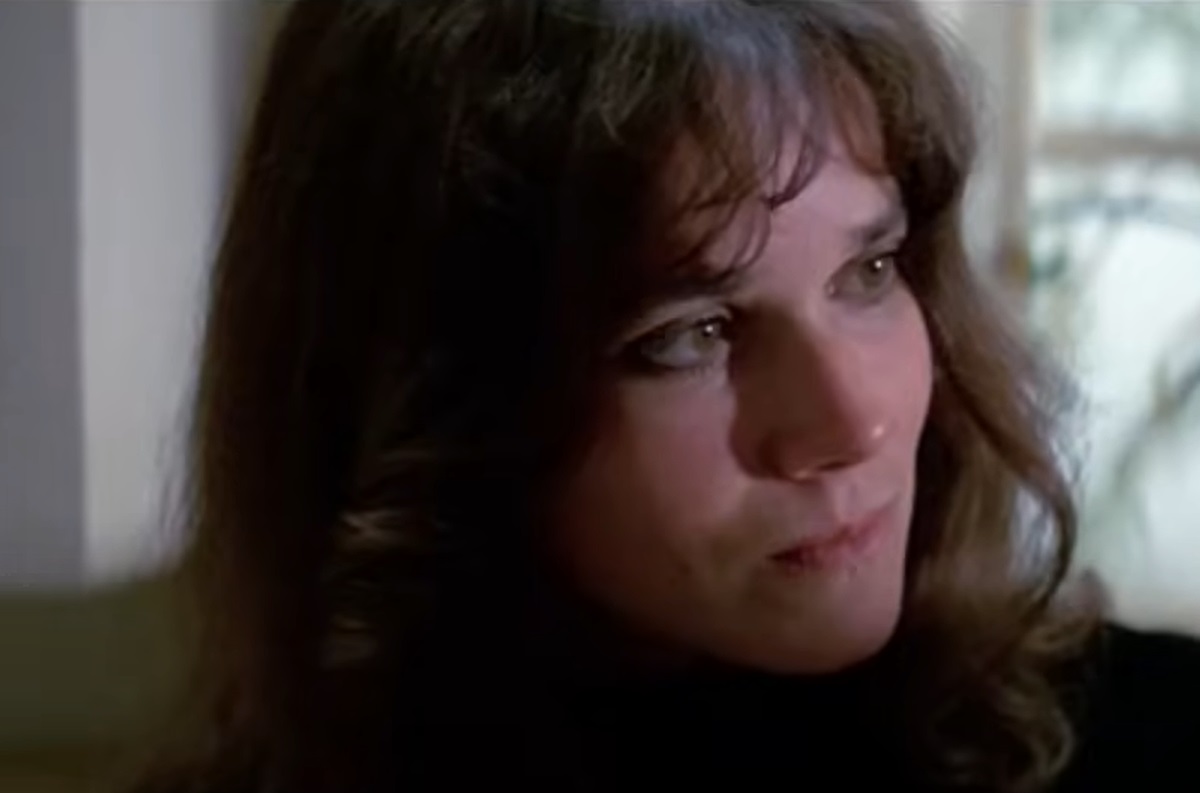 Twentieth Century, The Entity (1982)
Twentieth Century, The Entity (1982)
Poltergeist (1982)
Known as much for its creepy vibe as it is for the tragic fates of some of its stars, Poltergeist is a classic of early ‘80s horror. Heather O’Rourke’s eerie delivery of the line “They’re here…” as she gazes at a static-covered television screen is among the most iconic moments in all of film horror.
Ghostbusters (1984)
Ghostbusters hit big on its release, and if the current revival is anything to go by, it continues to do so. A story of some slightly shady scientists who get into the “ghost-busting” business, Ghostbusters catapulted Bill Murray and Dan Ackroyd into comedy stardom and has amused audiences for decades.
Beetlejuice (1988)
Along with Ghostbusters, Beetlejuice (that’s twice we’ve said it!) ranks as one of the great horror comedies set to film. Michael Keaton’s inspired performance in the title role, ably supported by Alec Baldwin, Geena Davis, and Winona Ryder, makes this an eminently rewatchable slice of creepy fun.
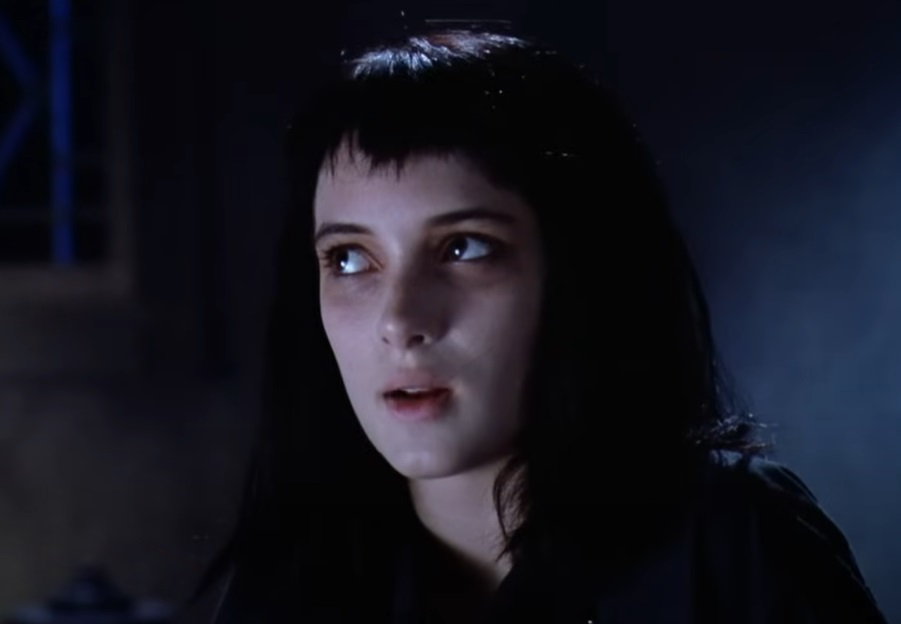 Warner Bros., Beetlejuice (1988)
Warner Bros., Beetlejuice (1988)
Field Of Dreams (1989)
“If you build it, they will come”. The “they” are a team of ghostly baseball players who show up for one final game at the baseball diamond Kevin Costner builds on his farm. A meditation on the end of life, loss, and grief, Field of Dreams is a classic ghost film that is light on the scares and heavy on the tears.
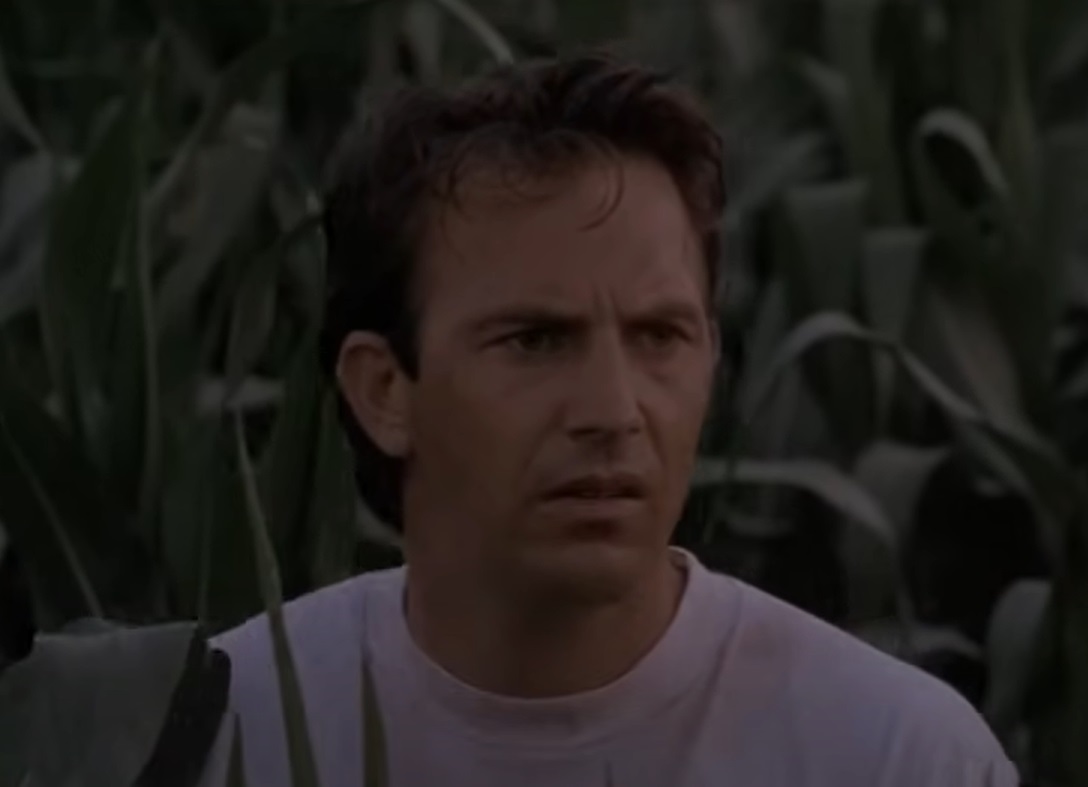 Universal, Field of Dreams (1989)
Universal, Field of Dreams (1989)
Ghost (1990)
A ghost story that managed to put an entirely new spin on pottery, of all things, Ghost also made stars out of Demi Moore and Patrick Swayze, who star as lovers separated by an untimely demise. Romance, mystery, and the supernatural combine seamlessly in this classic date movie of the 1990s.
Candyman (1992)
This ghostly slasher film made a horror icon out of Tony Todd, who plays the titular Candyman. A ghost with a hook for a hand stalks unwitting victims but, as with most Clive Barker stories, there’s a bit more to this one than just the scares. Social commentary has never been so scary.
Casper (1995)
One for the youngsters, if you don’t think too hard about Casper being the ghost of a child! An early Christina Ricci role about a family in a haunted house suffers a bit from its early CGI but is still a fun film based on the venerable children’s comic book.
The Frighteners (1996)
Before The Lord of the Rings, Peter Jackson was on his way to a respectable career as a horror movie director. This humorous ghost story was the last full-length leading role of Back to the Future star Michael J Fox before Parkinson’s Disease stalled his acclaimed and successful career.
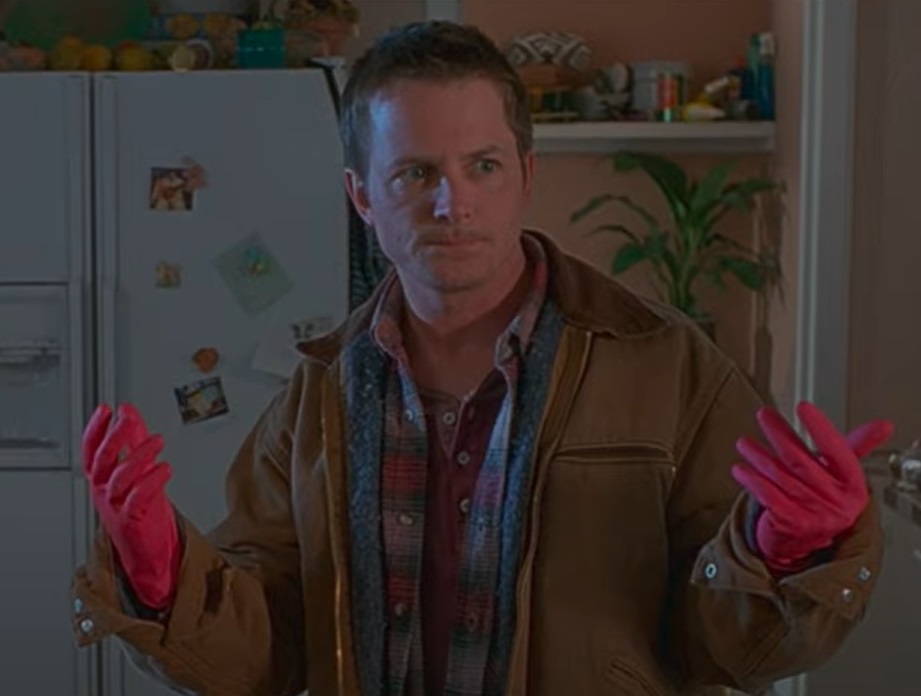 Universal, The Frighteners (1996)
Universal, The Frighteners (1996)
Ringu (1998)
An intensely creepy film about a haunted videotape, Ringu still manages to terrify despite video technology having left it behind some time ago. The ghostly Sadaku became an icon of J-Horror (Japanese horror), and this film inspired a creepy, but not as creepy, American remake.
The Sixth Sense (1999)
This brilliant film started the controversial career of M Night Shyamalan, and inspired a host of creepy films with “shocking twists” in the years that followed. Few, if any, managed the surprise and emotion of The Sixth Sense, and it still stands as one of the best ghost stories told in film.
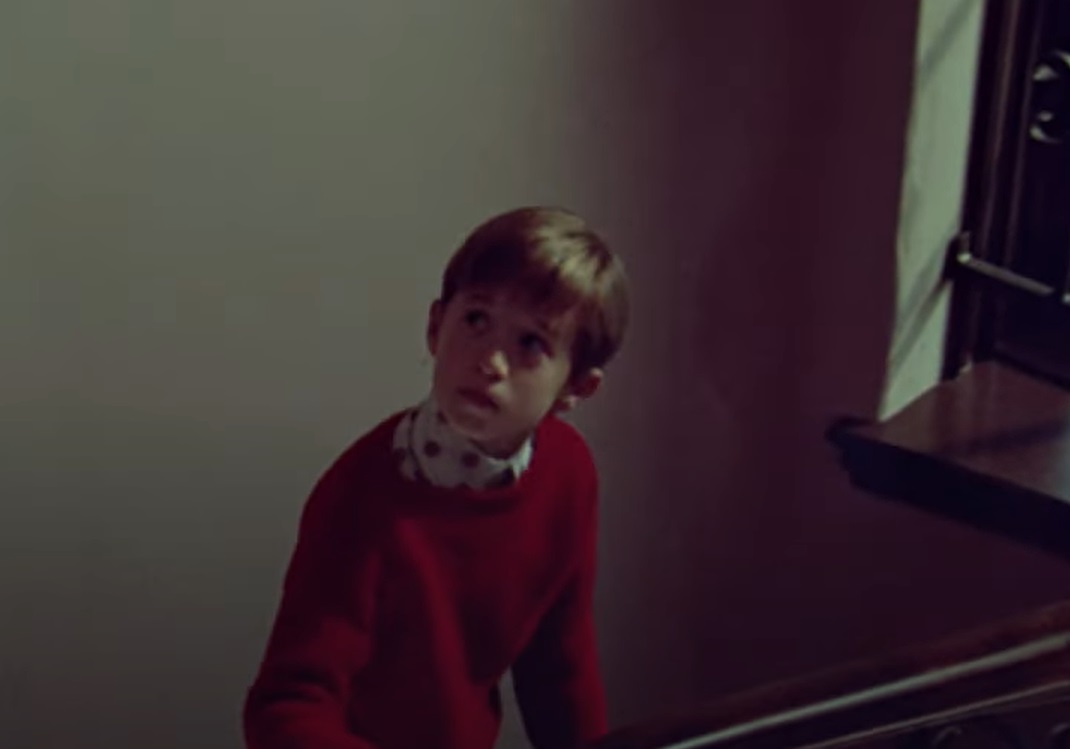 Buena Vista, The Sixth Sense (1999)
Buena Vista, The Sixth Sense (1999)
The Devil’s Backbone (2001)
The idea of something being haunted is often used as a metaphor for exploring traumatic events. Guillermo Del Toro’s The Devil’s Backbone uses the ghostly Santi as a cipher for the horrors of the Spanish Civil War, during which the film is set.
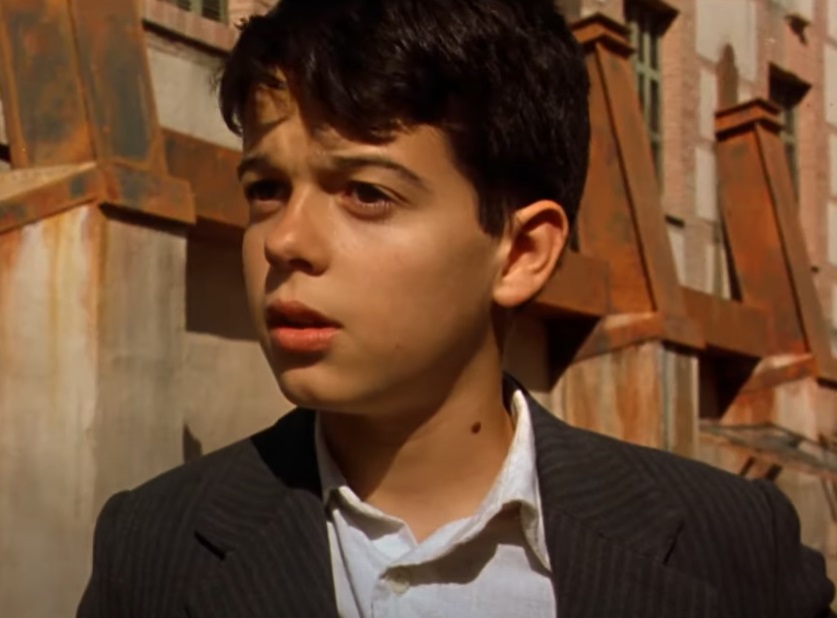 Canal+, The Devil's Backbone (2001)
Canal+, The Devil's Backbone (2001)
The Others (2001)
Of the films inspired by The Sixth Sense’s twist ending, The Others stands out as having an original and entertaining spin at the end. Nicole Kidman carries this creepy tale of a mother and her children living in a house that appears to be haunted by intrusive spirits set on driving them away.
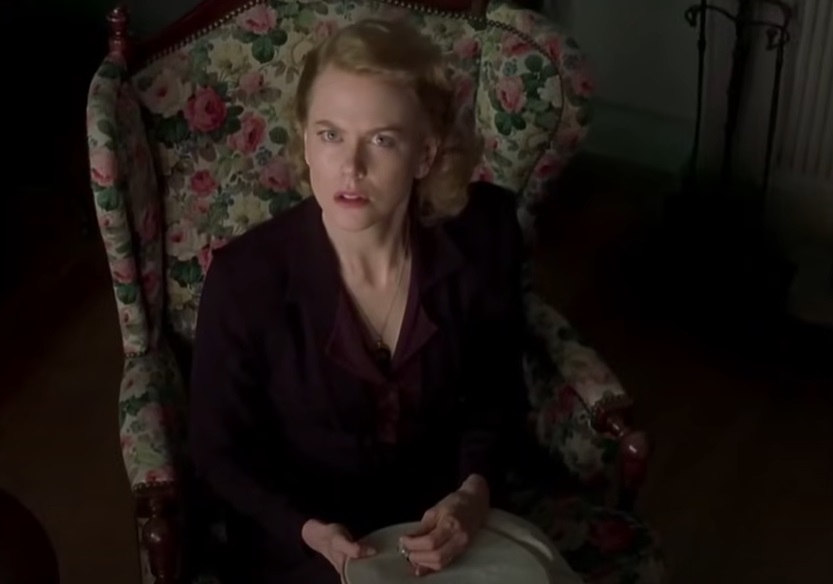 StudioCanal, The Others (2001)
StudioCanal, The Others (2001)
Session 9 (2001)
Equal parts twisting psychological thriller and unnerving ghost story, Session 9 tells the story of an asbestos removal team who are tasked with cleaning out an abandoned asylum. This atypical haunted institution tale plays with reality and time, and may leave viewers needing a second watch to sort it all out. If, of course, they’re brave enough.
A Tale Of Two Sisters (2003)
This Korean entry into the haunted house genre keeps its audience guessing and questioning throughout, even on repeated viewings. Two sisters, one recently released from a mental institution, attempt to unravel mysteries surrounding their family and the passing of their birth mother.
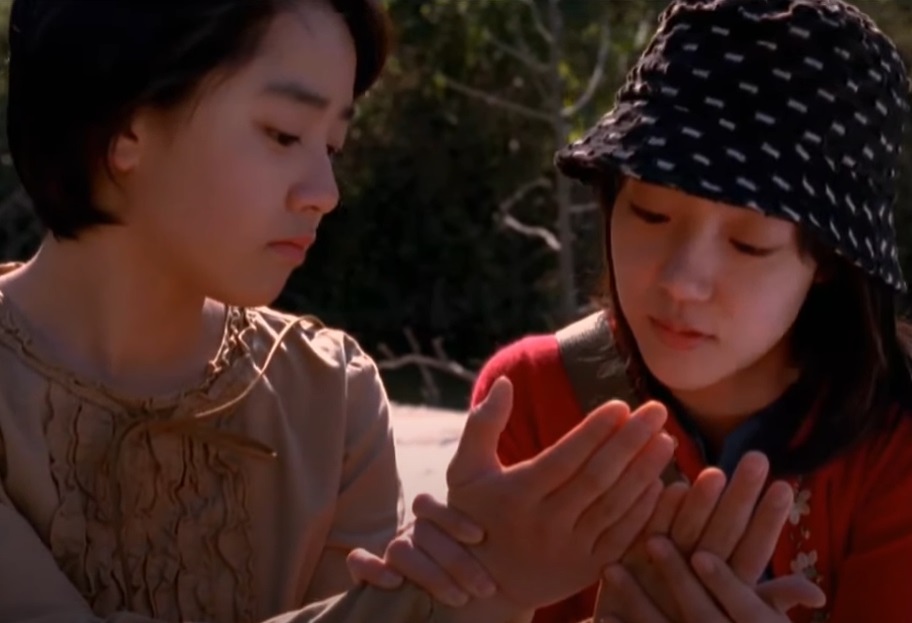 B.O.M., A Tale of Two Sisters (2003)
B.O.M., A Tale of Two Sisters (2003)
Lake Mungo (2008)
The use of found-footage to present a more intimate portrait of main characters is put to great use in this story of a family dealing with the loss of a daughter. Are they being haunted, or are they simply experiencing the great sadness that comes with the unexpected passing of a family member?
Grave Encounters (2011)
In the wake of the success of The Blair Witch Project, found-footage became the go-to genre for low-budget horror films. Among the many, this story of insincere television ghost hunters getting more than they bargained for is worth a watch. The abandoned asylum is a creepy locale, and the ghosts are just terrifying.
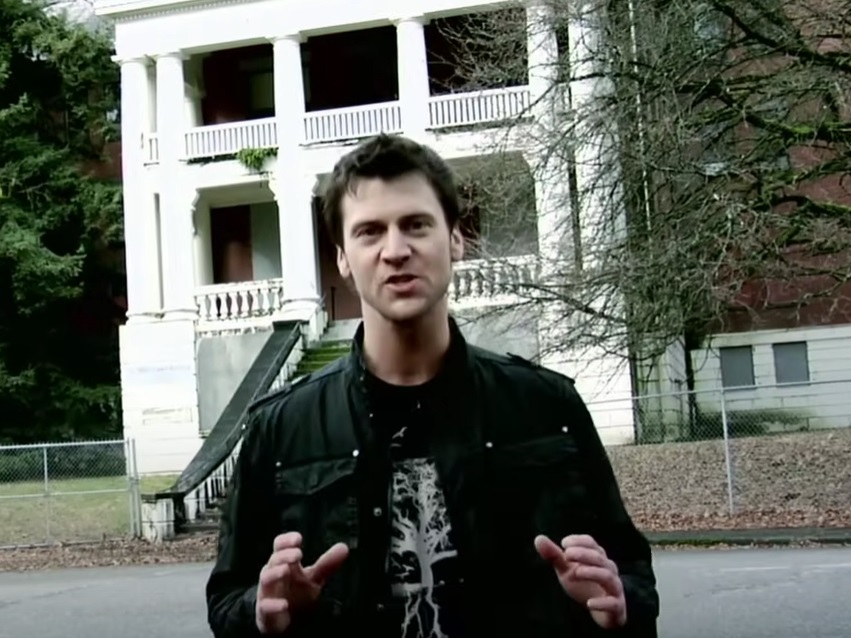 Twin Engine, Grave Encounters (2011)
Twin Engine, Grave Encounters (2011)
The Innkeepers (2011)
Writer/Director Ti West based this creepy film on an inn that he and his crew stayed at during the production of his previous horror film, The House of the Devil. Two friends investigate the creepy occurrences at their place of business, an old bed and breakfast that harbors some terrifying secrets.
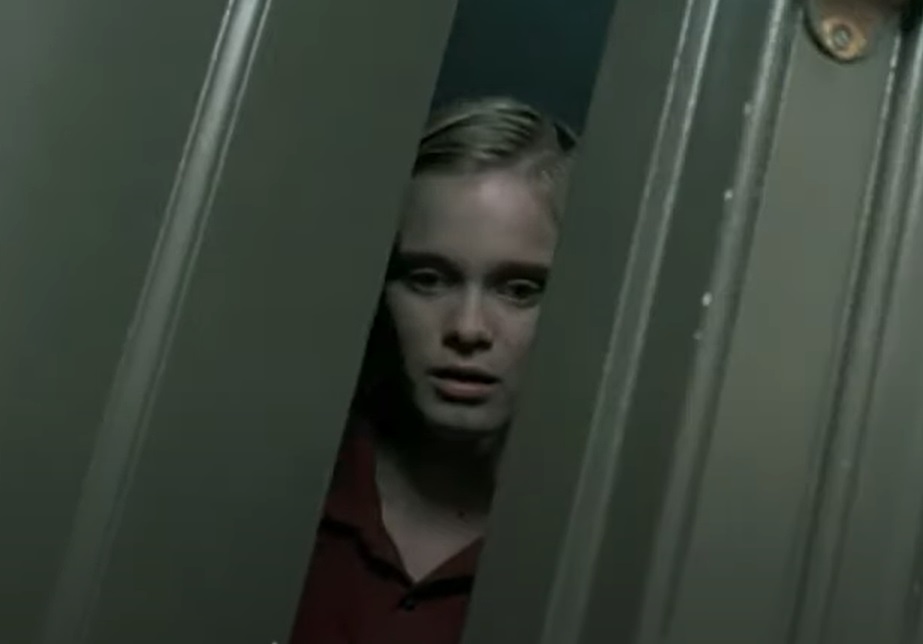 Glass Eye, The Innkeepers (2011)
Glass Eye, The Innkeepers (2011)
The Woman In Black (2012)
A pretty straightforward haunted house story set in the Victorian era, this film is notable mainly as one of the first lead roles taken on by Harry Potter star Daniel Radcliffe after his wizarding role wrapped. Radcliffe proves his acting chops as Arthur Kripps, a lawyer who attempts to unravel the mystery of the ghostly woman.
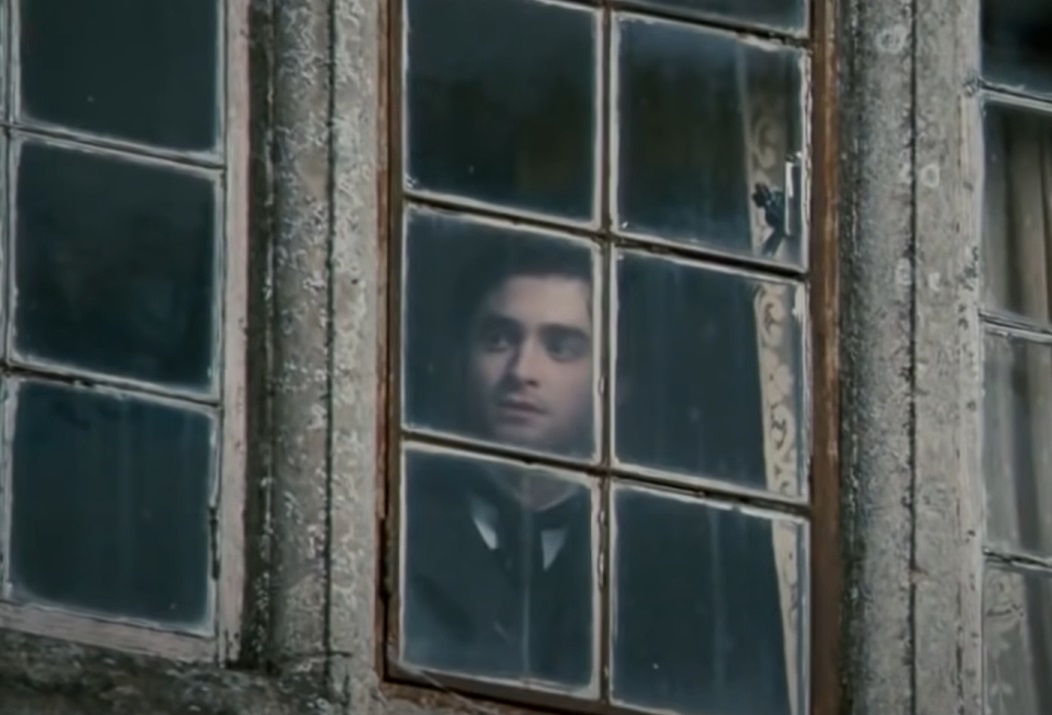 Hammer, The Woman in Black (2012)
Hammer, The Woman in Black (2012)
The Conjuring (2013)
A contemporary classic that has inspired a whole Conjuring universe, this ghost story is based on the experiences of the same paranormal investigators who inspired the iconic The Amityville Horror. Director James Wan is also responsible for the ultra-violent Saw, but The Conjuring is, to date, his creepiest film.
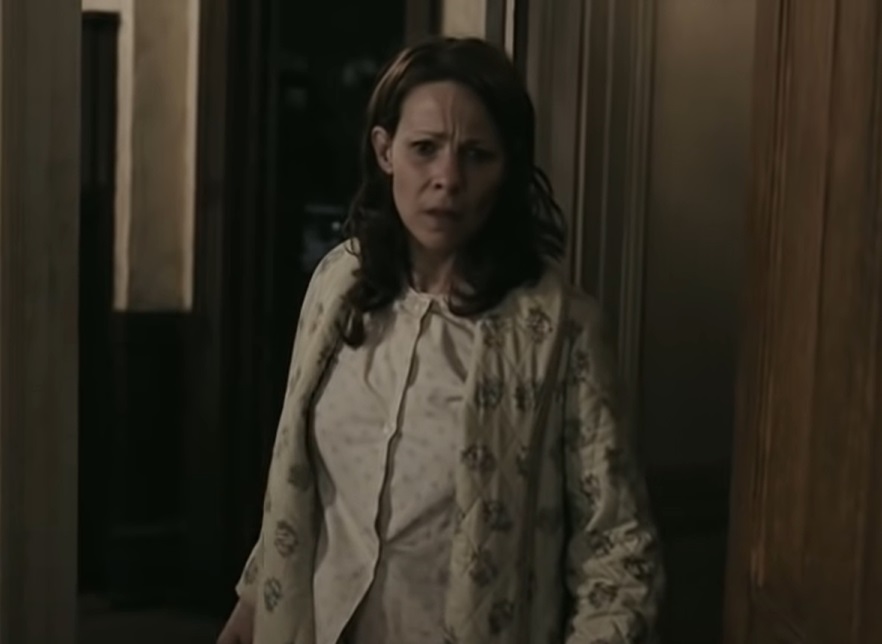 Warner Bros., The Conjuring (2013)
Warner Bros., The Conjuring (2013)
Oculus (2013)
It’s not always houses that are haunted. In Oculus, a haunted mirror is the focal point for two interconnected stories, tales of the same characters both as children and as adults. As the what and why of the haunted looking glass is revealed, the tales tie together in a creepy and satisfying conclusion.
Ouija: Origin Of Evil (2016)
Director Mike Flanagan pays homage to ghost stories of the past in this prequel to the original Ouija. The film explicitly acknowledges its roots in 1960s horror and combines this historical basis with plenty of contemporary scares.
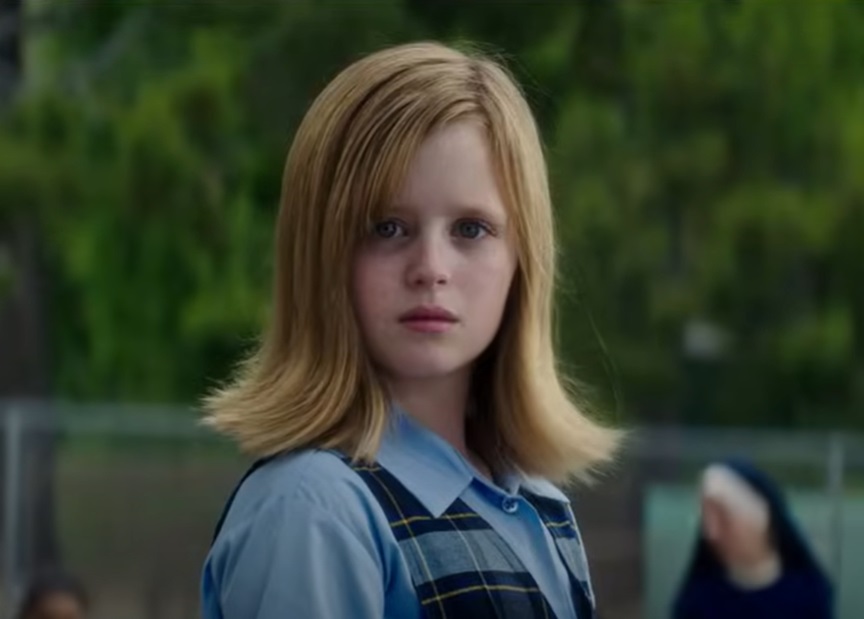 Universal, Ouija: Origin of Evil (2016)
Universal, Ouija: Origin of Evil (2016)
A Ghost Story (2017)
Ghost movies can be scary, but they can also be powerful tools for considering the all-too-human emotion of grief. A Ghost Story does this from both sides of life, following the stories of main characters known only as C and M as they navigate an unexpected, and haunting, loneliness.
His House (2020)
A ghost story that investigates the experience of immigrants, His House is a thoughtful, passionate, and deeply terrifying film. The backstory of main characters Bol and Rial is as important to the film as the ghostly narrative within which they find themselves, and asks important questions about why people decide to leave their homes.
The Shining (1980)
Of all the films on this list, The Shining stands the best chance of being considered the greatest horror film of all time. Jack Nicholson’s iconic performance is imprinted on Western cultural consciousness. His descent into madness in a ghost-filled hotel still manages to terrify. But it isn't just the movie that's terrifying—behind the scenes, director Stanley Kubrick went to horrifying lengths to get the perfect performance out of Shelley Duvall, who played Wendy Torrance.
Kubrick pushed Duvall to her breaking point, isolating her away from her cast members, berating her on-set, and demanding multiple takes of grueling, tearful scenes. The stress of it all got so bad, that as filming progressed, Duvall's hair started falling out in clumps. Yet despite the torment, Duvall never lost respect for Kubrick and even spoke highly of him many years later.
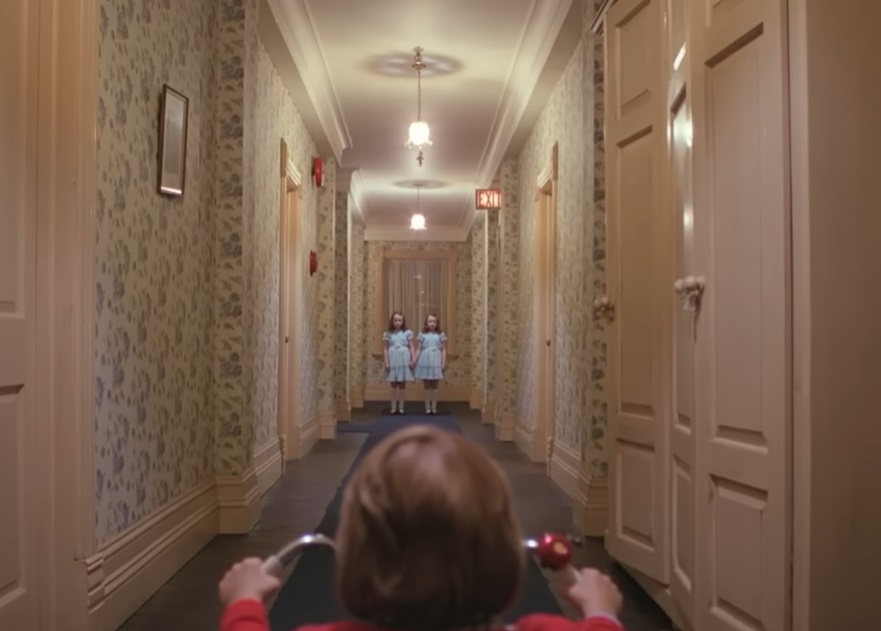 Warner Bros., The Shining (1980)
Warner Bros., The Shining (1980)

